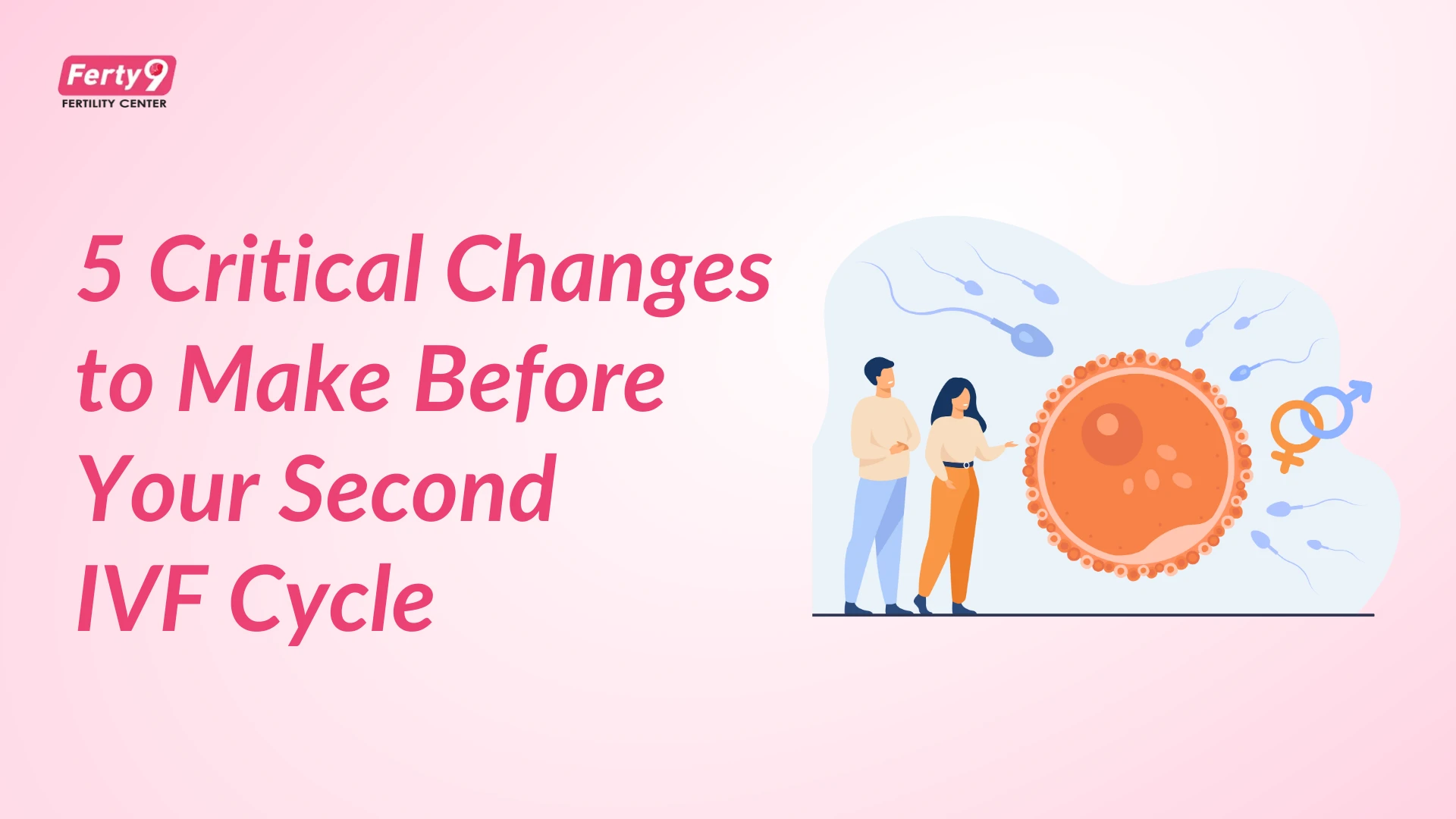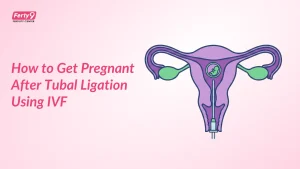Facing an unsuccessful IVF cycle can be heartbreaking. It’s a journey filled with immense hope, and when it doesn’t lead to the result you prayed for, it can be emotionally overwhelming. At FERTY9 Fertility Center, we want you to know that this is not the end of your journey. A first cycle provides valuable information that can help us refine the approach and significantly increase your chances of success the second time around.
Now, let’s focus on moving forward with strength and a new strategy. Here are 5 critical changes to discuss with your doctor and implement before starting your second IVF cycle.
1. Have a Detailed Review of Your First Cycle
This is the most important first step. Schedule a dedicated appointment with your fertility specialist at FERTY9 to discuss the previous cycle in detail. Don’t be shy; ask questions!
- What was the response? Discuss how your ovaries responded to the stimulation medicines. Were there enough eggs?
- What was the egg and embryo quality? Understand the quality of the eggs retrieved and how the embryos developed in the lab.
- Was the transfer smooth? Discuss the embryo transfer process and the condition of your uterine lining (endometrium).
Based on this review, your doctor can suggest changes to the injections type, protocol or dosage to get a better response in your next cycle.
2. Focus on Improving Egg and Sperm Quality
The health of the egg and sperm is the foundation of a healthy embryo. While you can’t change your genetics, you can improve the environment in which your eggs and sperm develop.
- Adopt a Fertility-Boosting Diet: Focus on a balanced, home-cooked meals. Include plenty of fresh vegetables, fruits, lentils (dal), paneer, and whole grains. Fertility can be boosted with colourful fruits and vegetables like pomegranates, berries, walnuts, and leafy greens which are excellent sources of antioxidants. Try to avoid processed foods, junk food, excessive sweets, and caffeine. Smoking and drinking alcohol or use of any recreational drugs can reduce fertility and are definitely to be avoided.
- Consider Supplements (with advice!): Your doctor might recommend supplements like Folic Acid, Coenzyme Q10 (CoQ10) or DHEA to improve egg quality, and antioxidants for sperm health. Please note: Never take supplements without consulting your fertility specialist.
- Keep your medical conditions under control: Uncontrolled Diabetes, Thyroid or other medical conditions can affect your egg and sperm quality, keeping these under control can improve your chances. High BMI especially above 35 can reduce success of IVF, hence reducing some weight may improve your chances to conceive.
3. Enhance Your Uterine Health
The uterus is the home where your embryo will hopefully implant and grow for nine months. We need to make sure it’s as welcoming as possible.
- Further Uterine Investigation: If not done already, ask your doctor about a hysteroscopy. This is a simple procedure that uses a thin telescope to look inside your uterus to check for any issues like small polyps, fibroids, or scar tissue that could interfere with implantation.
- Improve Blood Flow: Simple lifestyle changes like going for daily walks or practicing gentle yoga or breathing exercises can improve blood circulation to the uterus, which helps build a healthy lining for the embryo.
4. Explore Advanced IVF Lab Technologies
Fertility science is always advancing. Your second cycle may be the right time to consider some advanced laboratory techniques that can improve your chances.
- Preimplantation Genetic Testing (PGT-A): This technology allows us to check the embryos for chromosomal abnormalities before transferring them. By selecting the most genetically healthy embryo, we can increase the chance of implantation and reduce the risk of miscarriage.
- ERA ( Endometrial Receptivity Assay): This tests guides about best time to plan embryo transfer based on individualised window of implantation.
- Advanced sperm selection techniques: Microfluidics, PICSI, AI based sperm sorter for selection of sperm for ICSI can improve embryo grading.
5. Prioritize Your Emotional and Mental Well-being
The stress of an IVF journey is real, especially after a failed cycle. In India, societal pressures can add to this stress. Your mental peace is not just important—it’s critical for success.
- Practice Stress Reduction: Incorporate simple relaxation techniques into your daily routine. This could be 10 minutes of deep breathing exercises (pranayama), meditation or listening to calming music.
- Lean on Your Support System: Talk openly with your partner. You are in this together. Confide in a trusted friend or family member who supports you without judgment.
- Don’t Be Afraid to Seek Help: Good Centers have psychological counsellors to help you cope with the stress. Speaking to a professional counsellor can provide you with tools to manage anxiety and stress, creating a more positive mindset for your next cycle. A New Beginning with Renewed Hope
A failed IVF cycle is not a failure; it’s a stepping stone. With these adjustments and a dedicated medical team by your side, your second cycle can have a very different, positive outcome.The expert team at FERTY9 Fertility Center is here to walk with you, offering personalised care and the latest treatments to help you achieve your dream of parenthood.



























